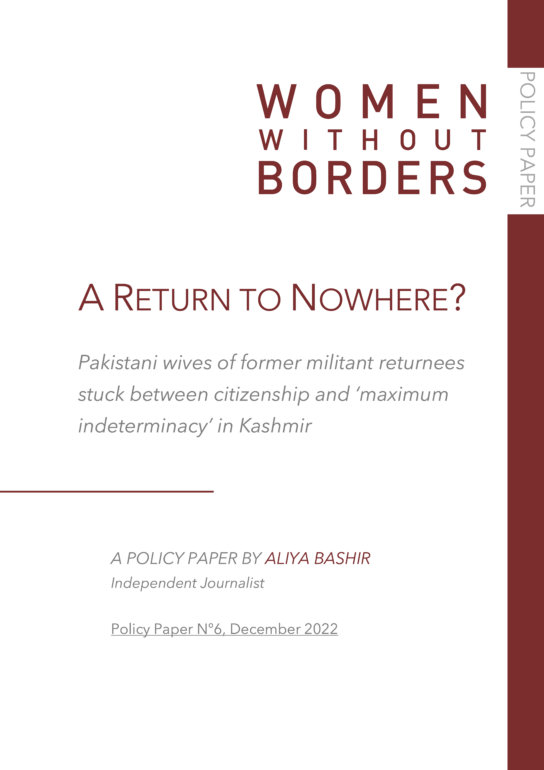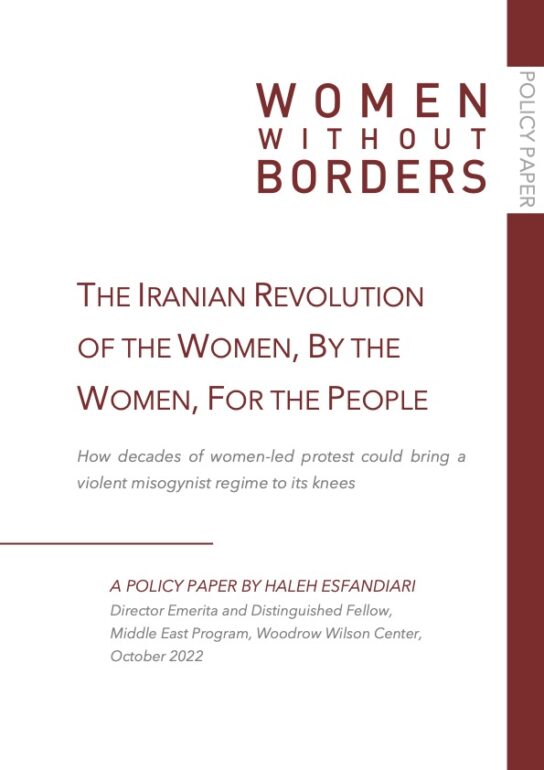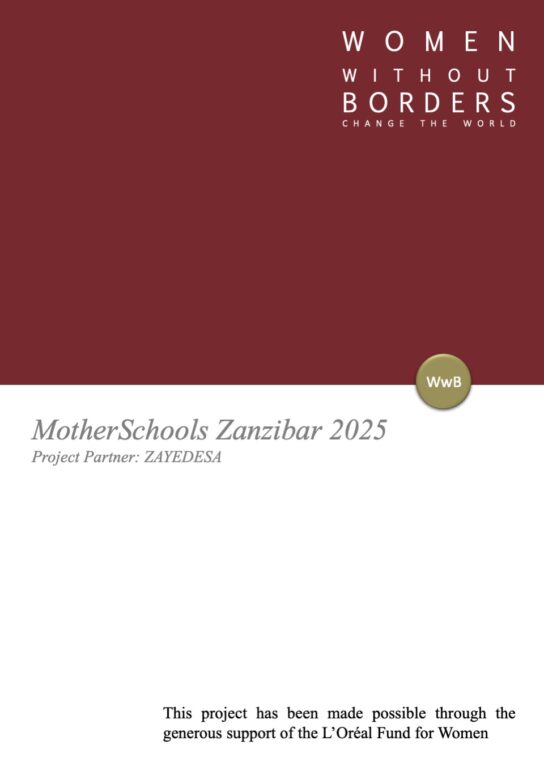In WwB Policy Paper N°6, Aliya Bashir delves into the issue of how the wives of former militant returnees in Kashmir remain socially invisible and absent from broader policy conversations, especially on women, peace, and security.
‘Rehabilitation Policy’
In 2010, the Government of Jammu & Kashmir announced a ‘rehabilitation policy’ for former militants who had crossed over to the Line of Control and were stuck in Pakistan. In the heydays of armed insurgency during the early 1990s, hundreds of Kashmiris infiltrated the international border to receive arms training in Pakistan to wage a war against the Indian rule in Kashmir. While many came back as trained fighters and rebelled against New Delhi in their fight for azadi (‘freedom’), others were unable to return. Disillusioned with the possibility of their return, they settled in Pakistan, entering into wedlock with Pakistani girls, and raising families.
The rehabilitation policy, announced at a time when India and Pakistan were sharing a warm relationship, came as a hope for the stranded Kashmiris to return to their home. But returning meant bringing together their wives (Pakistani citizens) and children. When the families reached Kashmir, everything seemed surreal and women were awed by the beauty of the place particularly the sprawling apple orchards. This early romance was soon eclipsed by police raids and confiscation of their passports, particularly those of women.
The gaps in the rehabilitation policy have left around 800 of their family members, including 400 of the former insurgents, with inadequate, incoherent, and inconsistent challenges. The state has by and large failed to repatriate and rehabilitate them. Women are the worst hit. They have not been granted citizenship nor do they have a proper documentation to return to their native country, Pakistan. Their husbands too have not been easily accepted either by their relatives or the society due to their past. As a consequence, they continue to face employment issues, property disputes, and remain under surveillance. The women have been denied the right to political participation and are even ineligible for a ration card. Not accepted by their communities, women are susceptible to suicide, domestic violence, and mental health trouble.
Read the policy paper in full here.





